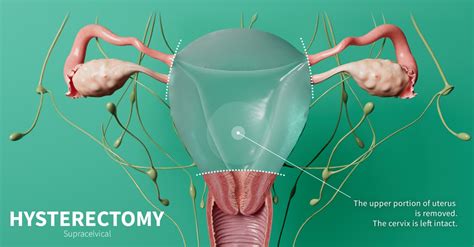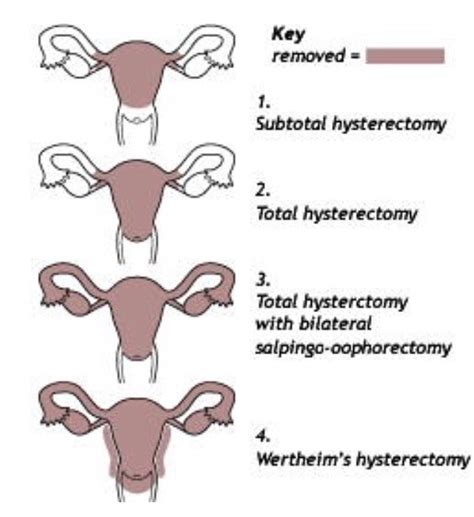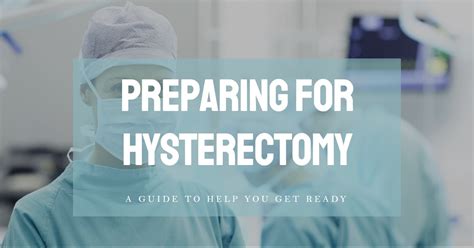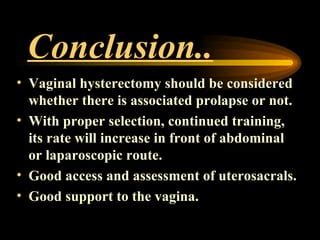Intro
Discover the ins and outs of Hysterectomy Surgery, including types, recovery, and risks, to make informed decisions about womens health and gynecological procedures, such as laparoscopic and abdominal hysterectomies.
The topic of hysterectomy surgery is one that affects millions of women worldwide, yet it remains shrouded in mystery and misconceptions. A hysterectomy, which involves the surgical removal of the uterus, is a life-changing procedure that can have significant physical and emotional implications for women. Despite its prevalence, many women are unclear about the reasons for undergoing a hysterectomy, the different types of procedures available, and the potential risks and benefits associated with the surgery. As we delve into the world of hysterectomy surgery, it is essential to understand the complexities and nuances surrounding this medical procedure.
For many women, a hysterectomy is a necessary step towards alleviating debilitating symptoms such as heavy bleeding, pelvic pain, or uterine cancer. The surgery can be a lifesaver, offering relief from chronic discomfort and improving overall quality of life. However, the decision to undergo a hysterectomy should not be taken lightly, as it is a major surgical procedure that requires careful consideration and consultation with a medical professional. With the advancement of medical technology and the development of new surgical techniques, women now have more options than ever before when it comes to hysterectomy surgery.
The importance of educating oneself about hysterectomy surgery cannot be overstated. By understanding the different types of procedures, the potential risks and benefits, and the recovery process, women can make informed decisions about their health and well-being. Whether you are considering a hysterectomy or simply want to learn more about the procedure, this article aims to provide a comprehensive overview of hysterectomy surgery, including its history, types, benefits, and potential complications. With this knowledge, women can take control of their health and make empowered decisions about their bodies.
What is a Hysterectomy?

Types of Hysterectomy Procedures
There are several types of hysterectomy procedures, each with its own unique characteristics and indications. The most common types of hysterectomy procedures include: * Total hysterectomy: This is the most common type of hysterectomy, which involves the removal of the uterus and the cervix. * Partial hysterectomy: This type of procedure involves the removal of the uterus, but leaves the cervix intact. * Radical hysterectomy: This is a more extensive procedure that involves the removal of the uterus, cervix, and part of the vagina, as well as the surrounding tissues and lymph nodes. * Laparoscopic hysterectomy: This is a minimally invasive procedure that involves the use of a laparoscope to remove the uterus through small incisions in the abdomen.Benefits of Hysterectomy Surgery

Risks and Complications of Hysterectomy Surgery
While hysterectomy surgery can be a lifesaver for many women, it is not without risks and complications. Some of the potential risks and complications of hysterectomy surgery include: * Bleeding and infection * Adverse reactions to anesthesia * Damage to surrounding organs and tissues * Hormonal changes and menopause * Emotional and psychological changesPreparing for Hysterectomy Surgery

Recovery from Hysterectomy Surgery
Recovery from hysterectomy surgery can take several weeks to several months, depending on the individual woman's health and the type of procedure performed. Some of the key things to consider when recovering from hysterectomy surgery include: * Resting and avoiding strenuous activities * Managing pain and discomfort with medication and other treatments * Attending follow-up appointments with a medical professional * Gradually returning to normal activities and exercise * Seeking emotional and psychological supportAlternative Options to Hysterectomy Surgery

Emotional and Psychological Aspects of Hysterectomy Surgery
Hysterectomy surgery can have significant emotional and psychological implications for women, particularly in terms of identity, self-esteem, and body image. Some of the key things to consider when it comes to the emotional and psychological aspects of hysterectomy surgery include: * Seeking support from loved ones, support groups, and mental health professionals * Processing and coping with emotions related to the surgery * Managing expectations and adjusting to the physical and emotional changes that may occur * Focusing on overall health and well-being * Embracing the positive aspects of the surgery and the potential for improved quality of lifeConclusion and Next Steps

What are the most common reasons for undergoing a hysterectomy?
+The most common reasons for undergoing a hysterectomy include uterine cancer, fibroids, endometriosis, and chronic pelvic pain.
What are the different types of hysterectomy procedures?
+The different types of hysterectomy procedures include total, partial, and radical hysterectomies, as well as laparoscopic and robotic-assisted hysterectomies.
What are the potential risks and complications of hysterectomy surgery?
+The potential risks and complications of hysterectomy surgery include bleeding and infection, adverse reactions to anesthesia, damage to surrounding organs and tissues, hormonal changes and menopause, and emotional and psychological changes.
How long does it take to recover from hysterectomy surgery?
+The recovery time for hysterectomy surgery can vary depending on the individual woman's health and the type of procedure performed, but it typically takes several weeks to several months to fully recover.
Are there any alternative options to hysterectomy surgery?
+Yes, there are several alternative options to hysterectomy surgery, including hormonal treatments and medications, uterine artery embolization, endometrial ablation, myomectomy, and uterine-sparing procedures.
We hope this article has provided you with a comprehensive overview of hysterectomy surgery, including its history, types, benefits, and potential complications. Whether you are considering a hysterectomy or simply want to learn more about the procedure, we encourage you to continue learning and seeking out reliable sources of information. If you have any questions or comments, please don't hesitate to reach out. Share this article with your friends and family, and join the conversation on social media using the hashtag #hysterectomysurgery. Together, we can empower women to take control of their health and make informed decisions about their bodies.
